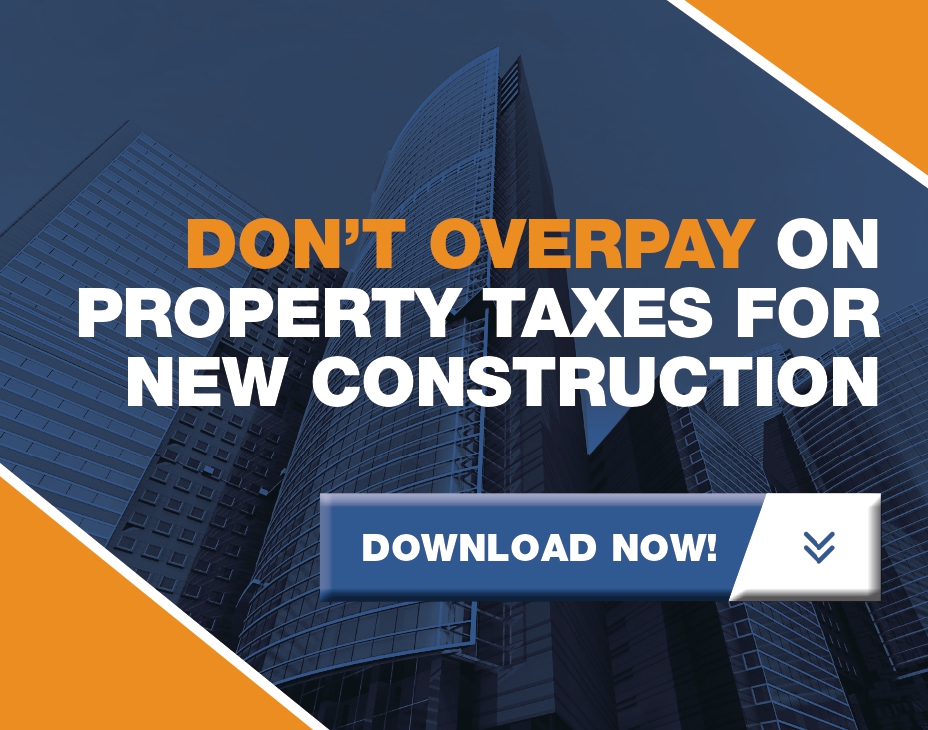Understanding the nuances of property tax can make a significant difference in your bottom line. As an investor, you're not just buying a property - you're also assuming a tax responsibility that can impact your investment's profitability. This guide aims to shed light on the intricacies of property tax in Colorado, focusing on potential write-offs that can maximize your returns and minimize your tax liability.
We are Paramount Property Tax Appeal, a company dedicated to helping commercial real estate investors navigate the complex landscape of property tax. Our team of experts is committed to providing you with the most accurate, up-to-date information and professional services to ensure you're not paying more than your fair share in taxes.
Understanding Property Tax in Colorado
Property tax is a critical source of revenue for local governments in Colorado, funding essential services like public education, infrastructure, and public safety. For commercial real estate investors, property tax is a significant expense that directly affects the profitability of your investment.
In Colorado, property tax is based on two key components: the property's assessed value and the tax rate, also known as the mill levy. The assessed value is determined by the county assessor and is based on the market value of the property. The mill levy is set by various taxing authorities, such as school districts, city councils, and county boards.
One unique aspect of Colorado's property tax system is the Gallagher Amendment, which maintains a constant ratio between the total property tax revenue that comes from residential properties and that from non-residential properties. For commercial real estate investors, this means that non-residential properties are assessed at 29% of their market value, a rate significantly higher than that for residential properties.
Understanding these principles is the first step in effectively managing your property tax obligations as a commercial real estate investor in Colorado. In the following sections, we will delve deeper into the specific tax deductions and strategies you can employ to optimize your tax position.
Property Tax Deductions for Landlords in Colorado
As a commercial real estate investor in Colorado, understanding the tax deductions available to you can significantly reduce your tax liability. These deductions can offset the cost of owning and maintaining your property, ultimately improving your investment's profitability. Here are some key deductions you should be aware of:
- Depreciation: The IRS allows landlords to deduct the cost of their commercial real estate property over its useful life, which is typically 39 years for commercial buildings. This annual depreciation deduction can help offset rental income, reducing your taxable income.
- Repairs and Maintenance: Costs incurred for repairs and maintenance to keep your property in good working condition are fully deductible in the year they are incurred. This includes expenses like painting, fixing leaks, replacing broken windows, and other minor improvements.
- Interest Expenses: Interest on loans used to purchase or improve your property is deductible. This can include mortgage interest, interest on credit cards for goods or services used in a rental activity, and interest on personal loans for any item used in a rental activity.
- Property Taxes: You can deduct the property taxes you pay on your commercial real estate. However, it's important to note that you can only deduct property taxes in the year you paid them.
- Insurance Premiums: Insurance premiums for your property, including coverage for fire, theft, and flood insurance, are deductible. If you have employees, you can also deduct the cost of their health and workers' compensation insurance.
- Professional Services: Fees paid to professionals such as lawyers, accountants, property management companies, and other professionals related to your rental activity are deductible.
Remember, good record-keeping is essential to claim these deductions. Keep track of all your expenses and maintain a file of receipts and invoices.
Senior and Veteran Exemptions
In Colorado, certain property tax exemptions are available to seniors and veterans, which can reduce the property tax burden for these groups. While these exemptions may not directly apply to commercial real estate investors, they can impact the market dynamics and demand for certain types of properties.
- Senior Exemption: Colorado offers a Senior Property Tax Exemption for seniors who are 65 years or older and have lived in their home for at least ten consecutive years. This exemption allows eligible seniors to exempt 50% of the first $200,000 of their property's value from taxation.
- Veteran Exemption: Disabled veterans in Colorado may also be eligible for a property tax exemption. The exemption amount is determined by the Colorado Division of Veterans Affairs and is based on the level of the veteran's disability.
To apply for these exemptions, eligible seniors and veterans must submit an application to the Colorado Department of Local Affairs. The application process typically begins in January and ends in July.
While these exemptions may not directly reduce your tax liability as a commercial real estate investor, they can influence the demand for certain types of properties, particularly in areas with a high concentration of seniors or veterans. Understanding these exemptions can help inform your investment strategy and property selection.
Appealing Property Tax Assessments in Colorado
In Colorado, property tax assessments are conducted by county assessors who determine the market value of your property. However, there may be instances where you disagree with the assessed value. In such cases, you have the right to appeal the assessment.
The appeal process begins at the county level. You must first submit a protest to the county assessor's office, typically by June 1st. The assessor will review your protest and make a decision. If you disagree with the assessor's decision, you can appeal to the county board of equalization.
If you're still unsatisfied with the decision at the county level, you can appeal to the state level at the Board of Assessment Appeals or to the district court. It's important to note that each step in the appeal process has specific deadlines that must be met.
Here are some tips for a successful property tax appeal:
- Understand the Assessment: Before you can effectively challenge your property tax assessment, you need to understand how it was calculated. Review the assessment notice and understand the factors that influenced your property's assessed value.
- Gather Evidence: To successfully appeal your property tax assessment, you'll need to provide evidence that supports your claim that your property's assessed value is too high. This could include information on comparable properties, documentation of issues that could devalue your property, or a professional appraisal.
- Be Timely: Pay close attention to the deadlines for each step in the appeal process. Missing a deadline can result in your appeal being denied.
How Paramount Property Tax Appeal Can Help
Navigating the complexities of property tax can be challenging, but you don't have to do it alone. At Paramount Property Tax Appeal, we specialize in helping commercial real estate investors in Colorado manage their property tax obligations.
Our team of experts can assist you in understanding your property tax assessment, identifying potential deductions, and appealing your property tax assessment if necessary. We stay up-to-date with the latest changes in property tax laws and regulations, ensuring that you're always getting the most accurate and relevant advice.
But don't just take our word for it. Here's what some of our satisfied customers have to say:
“Paramount Property Tax Appeal significantly reduced my tax bill. Their constant communication and expertise made the tax appeal process painless for me.”
– George Mayer, Coastline Equity
At Paramount Property Tax Appeal, we're committed to helping you maximize your investment returns by minimizing your property tax liability. Contact us today to learn more about how we can assist you with your property tax needs.
Conclusion
Navigating the intricacies of property tax in Colorado as a commercial real estate investor can be a complex task. From understanding the fundamentals of Colorado's property tax system to identifying potential deductions and navigating the appeal process, there's a lot to consider. However, with the right knowledge and resources, you can effectively manage your property tax obligations and maximize your investment returns.
In this guide, we've covered the key aspects of property tax for commercial real estate investors in Colorado, including:
- Understanding the basics of property tax in Colorado.
- Identifying key tax deductions available to landlords.
- Exploring property tax exemptions for seniors and veterans.
- Navigating the process of appealing property tax assessments.
At Paramount Property Tax Appeal, we're here to help you navigate these complexities. Our team of experts is dedicated to providing you with the most accurate, up-to-date information and professional services to ensure you're not paying more than your fair share in taxes.
Remember, good property tax management is a crucial part of successful real estate investing. Don't let the complexities of property tax deter you from maximizing your investment returns. Reach out to Paramount Property Tax Appeal today, and let us help you navigate your property tax needs in Colorado. Your bottom line will thank you.
.png)


.png?width=170&height=64&name=Logo%20320x120(2).png)
